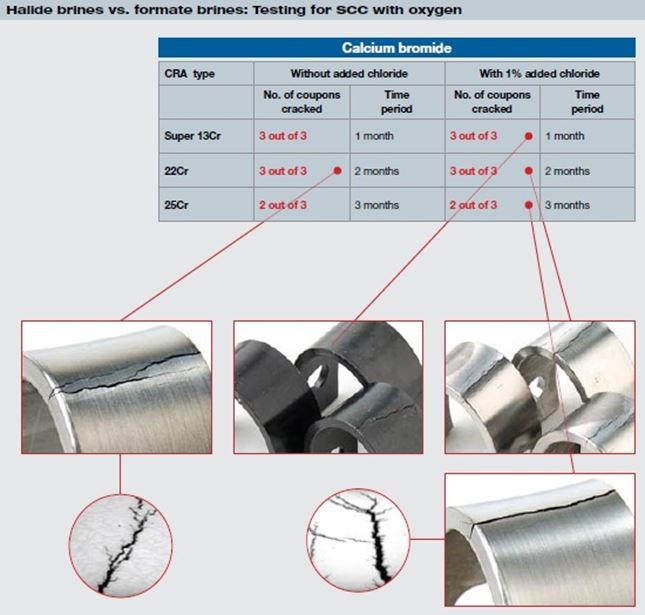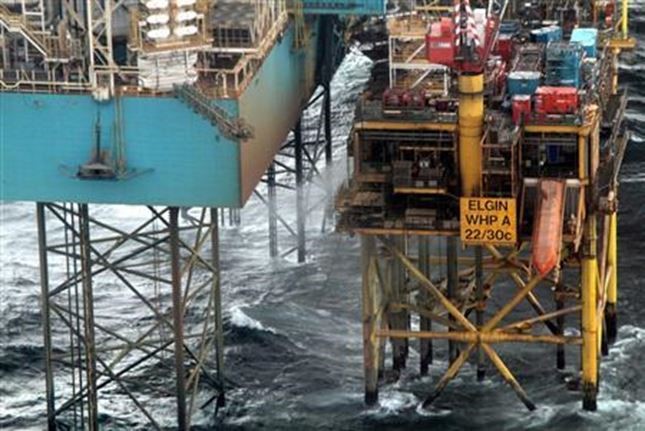Brine selections that go wrong – Calcium Bromide in a HPHT well
Several months ago I had a chat with a couple of reporters from Reuters, they were working on a piece related to the Elgin gas release and they were interested in learning a bit of corrosion of downhole components. They produce their news article and I decided to share it in this post.
From a metallurgy/corrosion point of view, the use of Calcium Bromide in HPHT wells can lead to failures as reported by “CaCl2, NaCl, ZnCl2, and CaCl2–CaBr2 solutions, and so on, are required to be injected in the tubingcasing annulus or well, pitting corrosion and cracking of corrosion-resistant alloy should first be evaluated under simulated downhole conditions and the coordinated action of hydrogen sulfide and carbon dioxide. For martensitic stainless steel and diphase stainless steel, the aforementioned effect of Cl or other halide ions (F , Br ) should be evaluated.” (Ref 1)
A brine supplier (Ref 2 and Ref 3) has produced and published extensive data on CaBr2 testing, the results shown below are related to oxygen exposure, full details can be found in Ref 3

The Reuters article is below, follow the link for the full article
Exclusive: Oil & gas industry fears more deep-sea leaks linked to drill fluid
BY STEPHEN EISENHAMMER, OLEG VUKMANOVIC AND MURIEL BOSELLI

A corrosive drilling fluid that triggered the North Sea’s worst gas leak in 20 years could threaten similar deep-sea wells across the world, and operator Total has already warned Shell that its nearby Shearwater field may be at risk. The corrosive fluids implicated in the leak at Total’s Elgin field, such as calcium bromide, are commonly used in such deep-sea wells, and experts fear a recurrence as operators, under pressure to offset declining output from conventional reservoirs, turn to deeper, hotter and higher pressure fields. “Bromide brines have been used in thousands of wells since their introduction in the 1980’s,” John Downs, a chemical engineer who runs his own consultancy group, told Reuters. “An extensive well repair program may be needed if the stress corrosion cracking caused by bromide brine in Elgin is also happening elsewhere.”
What’s your experience with CaBr2 and other formide brines? let’s have a conversation…
Ref 1: Renpu, Wan. Advanced well completion engineering / by Wan Renpu. – 3rd ed., Elsevier 2011
Ref 2: Formate Brines, Compatibility with Metals by Sv Howard Commissioned by Cabot Specialty Fluids
Ref 3: Corrosion, brine choice matters by Cabot Specialty Fluids



